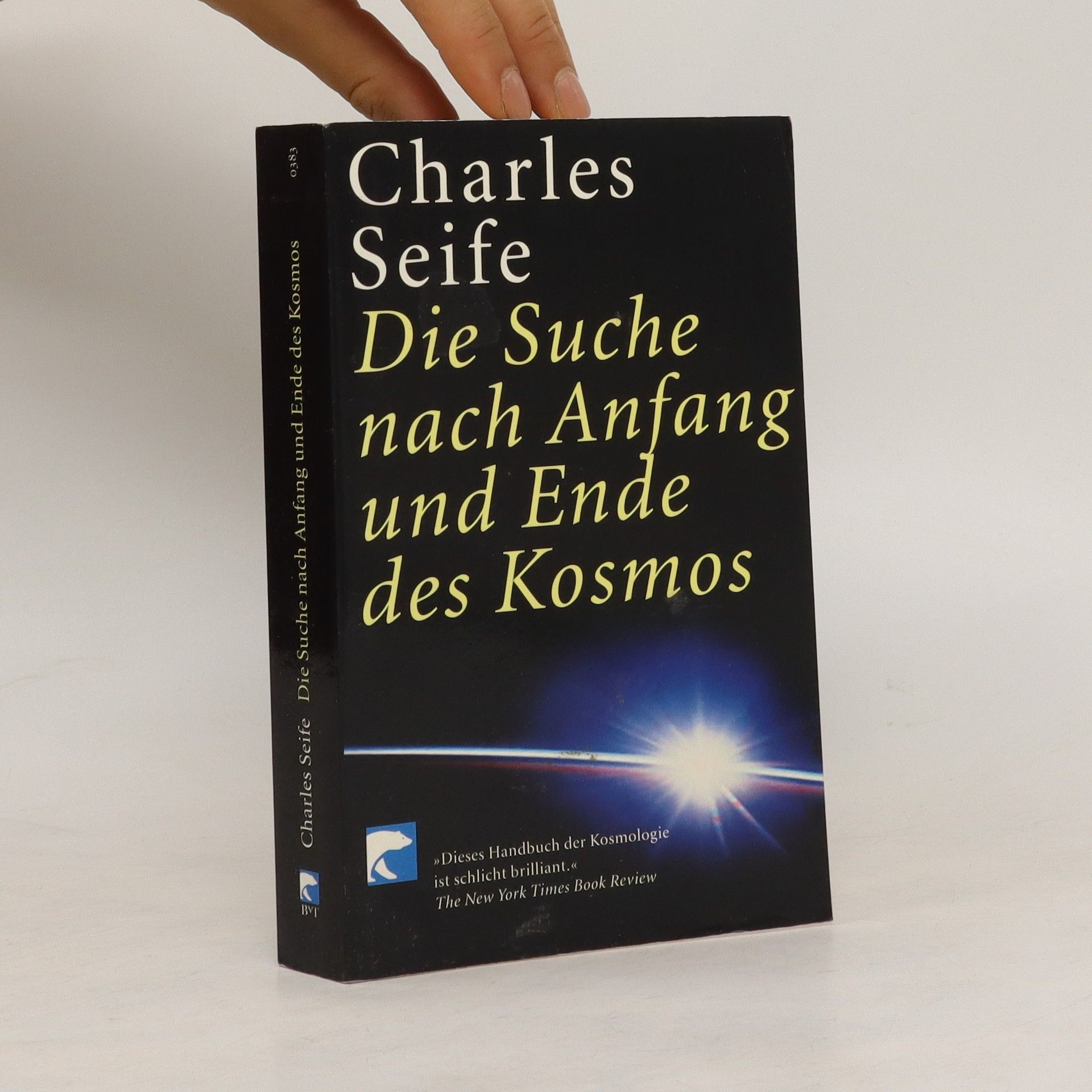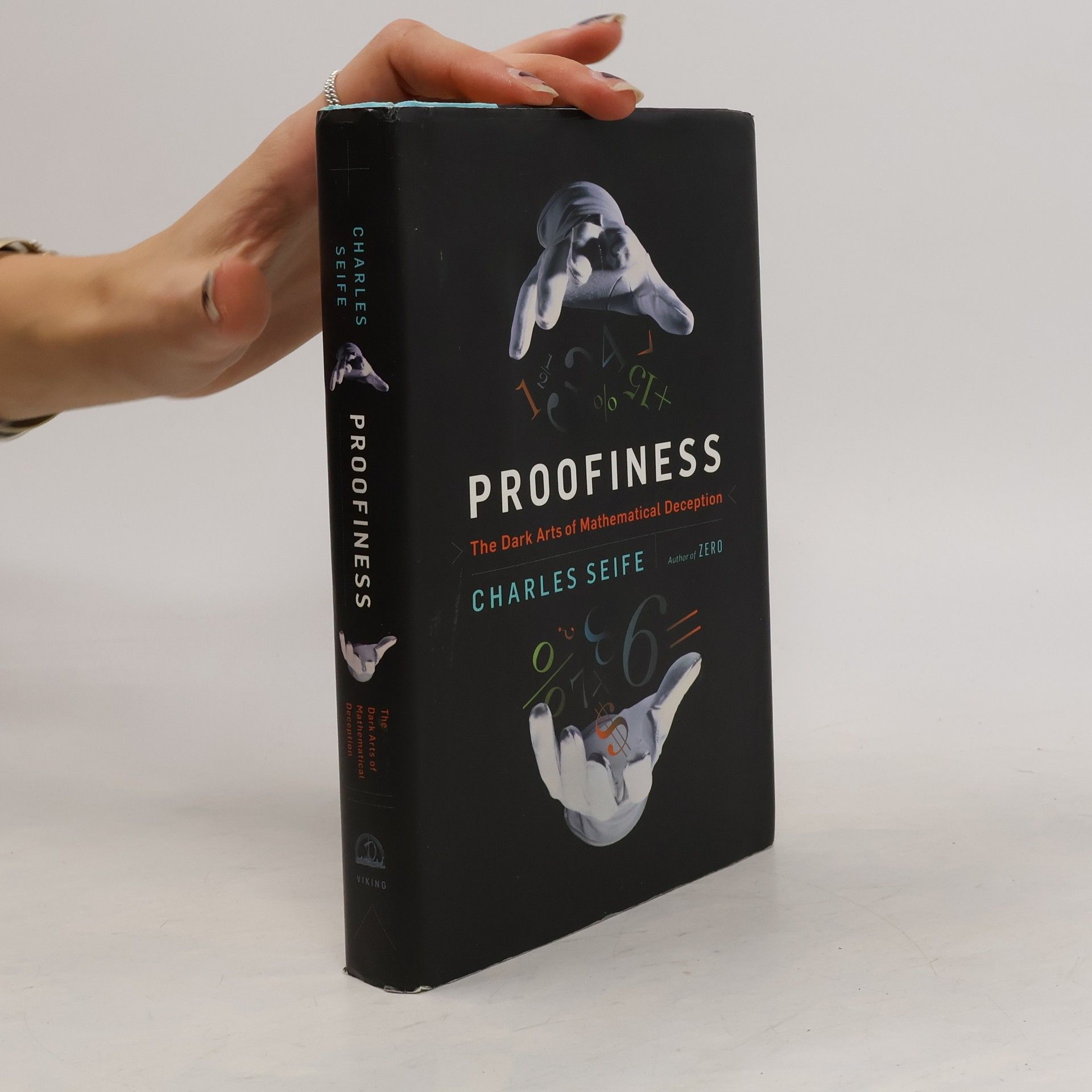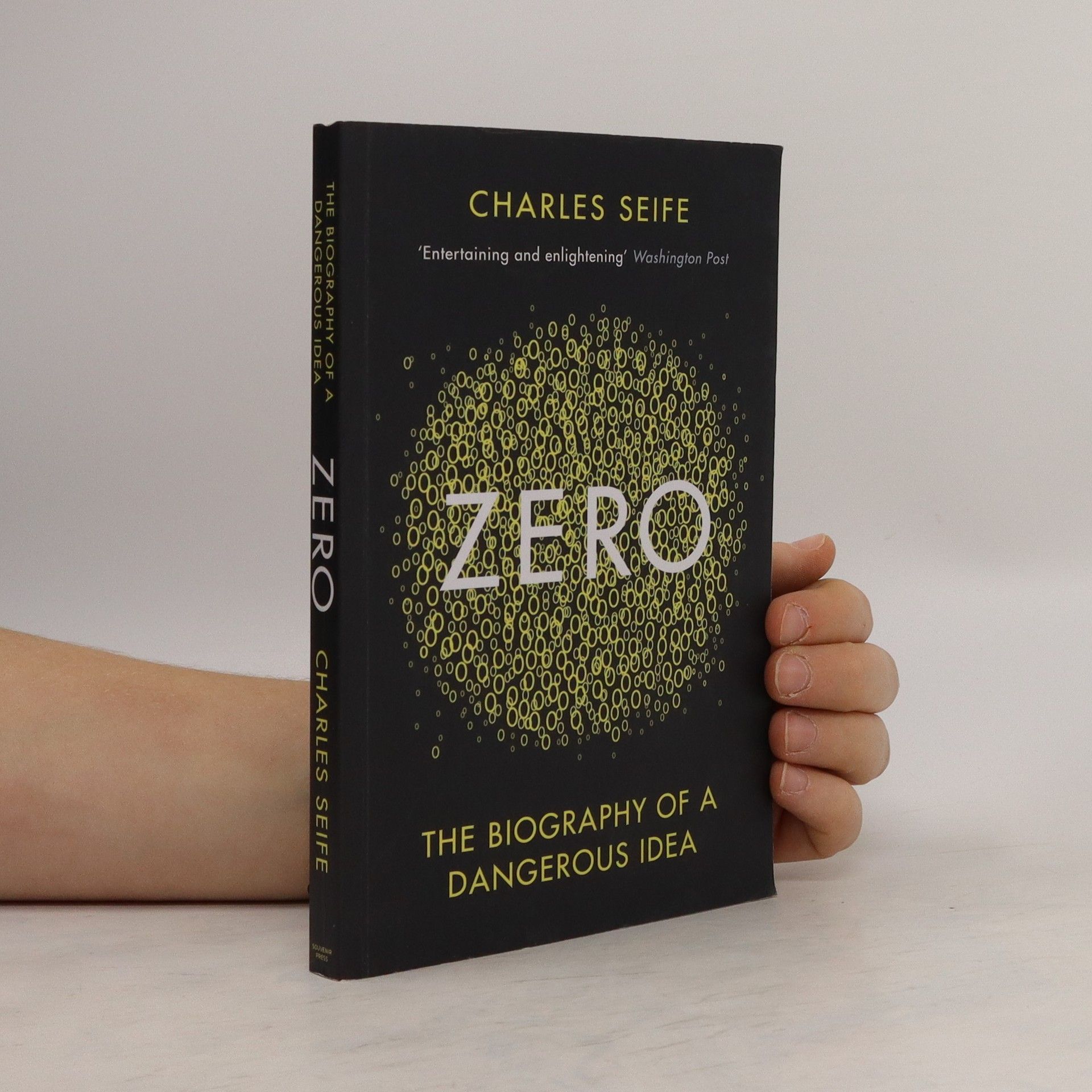Ve své knize autor zkoumá, jak došlo k tomu, že Steven Hawking je považován za jednoho z největších géniů lidstva. Hawking sice strávil svou vědeckou dráhu řešením hlubokých fyzikálních problémů, jeho proslulost však nespočívá na vědě. Byl totiž i mistrem sebepropagace – pořádal večírky pro cestovatele časem, prohlašoval se za řešitele problémů, které nevyřešil, vlichocoval se miliardářům. Byl sice upoután na invalidní vozík a odkázán na péči oddaných příznivců, přesto si však dokázal lidi kolem sebe podmanit a využít pro své cíle. Skutečný Hawking je kontroverzní odhalení i vynikající biografie současně. Odkrývá skutečnou osobu skrytou pod nánosem výmyslů. Je to příběh muže, jehož genialitě ve vědě se plně vyrovnala jeho schopnost budovat mýtus o sobě samém. „Nelichotivá, ale výtečná biografie jednoho z gigantů fyziky 20. století.“ – Kirkus
Charles Seife Book order (chronological)
Charles Seife, a professor of journalism at New York University, delves into the peculiar and often overlooked concepts that shape our understanding of the world. His writing is characterized by a deep exploration of complex subjects, uncovering hidden meanings and connections. Seife masterfully blends his journalistic expertise with an analytical rigor, bringing fascinating realms of science and mathematics to life for the reader. His work challenges conventional thinking and prompts contemplation on the fundamental principles that define our reality.






Stephen Hawking
Genie des Universums
Als Stephen Hawking in den frühen 1960er Jahren mit seiner Forschung begann, war sein Fach, die Kosmologie, eine verschlafene Disziplin. Als er 2018 starb, war sie das wohl aufregendste Forschungsgebiet der Physik, das einen Nobelpreis nach dem anderen einheimste. Und Stephen Hawking galt weithin als der beste Physiker, wenn nicht sogar als der klügste Mensch der Welt. Diese aufregende, zuweilen beunruhigende Biographie zeigt, wie es dazu kam.
Exploring the concept of "proofiness," the book delves into how skewed metrics manipulate public perception through both humorous and alarming examples. From absurd mathematical claims to serious implications for democracy, it highlights the misuse of statistics in undermining justice and influencing elections. The author employs real mathematical analysis to critique society's fixation on metrics, revealing the dangers of misinformation while maintaining a lighthearted tone. Seife's examination serves as a call to recognize and challenge the deceptive use of numbers in media and government.
Die Suche nach Anfang und Ende des Kosmos
- 336 pages
- 12 hours of reading
Astronomen und Physiker sind dabei, die ultimativen Fragen, die die Menschheit seit Anbeginn beschäftigt haben, zu beantworten: Wie entstand das Universum, und wie wird es enden? Begeisternd und für jeden verständlich erzählt Charles Seife die schier unglaubliche Geschichte dieser aktuellen kosmologischen Revolution.
Zero
- 256 pages
- 9 hours of reading
A NEW YORK TIMES NOTABLE BOOKThe Babylonians invented it, the Greeks banned it, the Hindus worshipped it, and the Christian Church used it to fend off heretics. Today it's a timebomb ticking in the heart of astrophysics. For zero, infinity's twin, is not like other numbers. It is both nothing and everything.Zero has pitted East against West and faith against reason, and its intransigence persists in the dark core of a black hole and the brilliant flash of the Big Bang. Today, zero lies at the heart of one of the biggest scientific controversies of all time: the quest for a theory of everything. Within the concept of zero lies a philosophical and scientific history of humanity.Charles Seife's elegant and witty account takes us from Aristotle to superstring theory by way of Egyptian geometry, Kabbalism, Einstein, the Chandrasekhar limit and Stephen Hawking. Covering centuries of thought, it is a concise tour of a world of ideas, bound up in the simple notion of nothing.